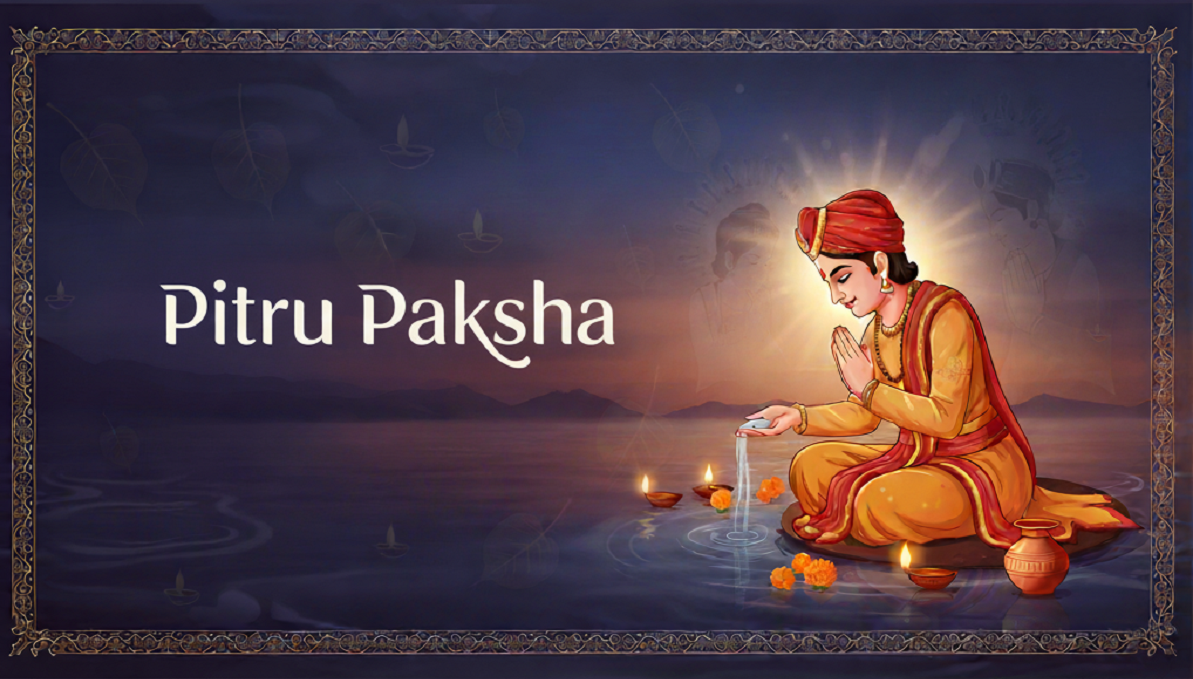Pitru Paksha, also known as Shradh Paksha, is a sacred 16-day period observed in the Hindu lunar calendar for honoring one’s ancestors—deeply rooted in Vedic tradition and the scriptures. As described in the Garuda Purana and Mahabharata, Pitru Paksha is when the souls of ancestors descend to Earth to receive offerings, and the rituals performed during this time help their souls attain peace and even moksha (liberation).
Scriptural References & Myths
- Garuda Purana and Manu Smriti highlight the importance of Shraddha and food donations, marking them as acts that confer tremendous merit (punya).
- The Mahabharata’s legend of Karna is central: Karna, denied food during his lifetime, receives peace only when Yudhishthira makes offerings during Pitru Paksha—underscoring that sincere rituals can bring salvation to departed souls.
- Emperor Harishchandra’s tale emphasizes integrity in performing Shradh, earning divine blessings and the return of his lost kingdom.
Traditions and Rituals
- Shraddha: Cooked food (kheer, puri, lentils) offered to Brahmins and crows as messengers of the ancestors; performed on the tithi matching the ancestor’s death date.
- Tarpan: Water mixed with sesame seeds and barley offered while chanting sacred mantras, quenching the thirst of departed souls on riverbanks.
- Pind Daan: Rice and barley balls symbolize the body and are offered to liberate ancestors from worldly attachments.
- Daan (Charity): Food, clothes, and essentials are shared with the needy and Brahmins to multiply spiritual merit and bring joy to ancestors.
- Feeding the Poor: Anna Daan, food donation, is the highest virtue, echoing the Garuda Purana’s teaching: “Anna Daan is Mahadaan—the greatest of all donations”.
Significance & Spiritual Importance
- Spiritual Debt (Rin): Every individual is born with three debts: to the gods (Dev Rin), sages (Rishi Rin), and ancestors (Pitru Rin). Pitru Paksha is the period to repay the debt to forebears through rituals and charity.
- Gateway for Blessings: The boundary between earthly and spiritual realms is believed to thin during Pitru Paksha, allowing ancestral blessings to flow more freely to their descendants.
- Path to Moksha: Rituals help guide ancestral souls toward liberation, fulfilling their unfulfilled desires, and resolving karmic lineage issues.
- Karmic Cleansing: Selfless acts and devotion cleanse ancestral and personal karma, harmonizing family bonds and resolving Pitru Dosha.
Remedies & Modern Practices
- Anna Daan (Food donation): Sponsor meals or distribute food to the needy, keeping the tradition and merit alive beyond rituals.
- Tarpan & Pind Daan: Perform water and rice-barley ball offerings on riverbanks or at home, reciting Pitru Sukta and Gita shlokas for ancestral peace.
- Charity & Giving: Donate clothes, grains, or money in your ancestors’ name, especially to Brahmins, cows, and the poor—clearing doshas and inviting blessings.
- Lighting Lamps: Light a sesame oil lamp facing south at sunset, honoring the direction of ancestors and channeling positive energy.
- Online Puja Services: Contemporary observances allow families to perform puja virtually, supported by trusted NGOs—echoing the essence of compassion and remembrance in modern times.
Pitru Paksha is more than a period of ritual—it is a spiritual homecoming, affirming the continuum of love, gratitude, and values passed down generations. Honoring and serving ancestors during these days not only brings peace to the departed but also harmonizes, heals, and blesses those who continue their legacy. Anna Daan and Shraddha, as endorsed by the Garuda Purana and countless legends, remain the most powerful means to ensure ancestral happiness and perpetual blessings for the living.



